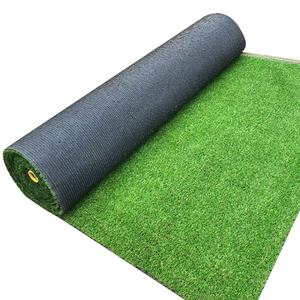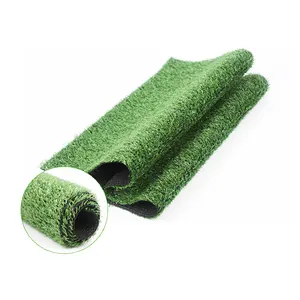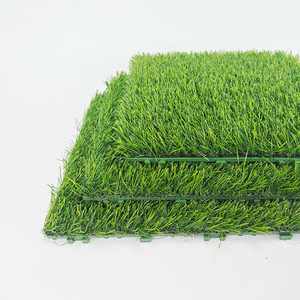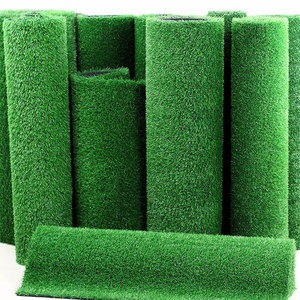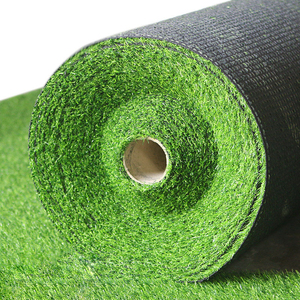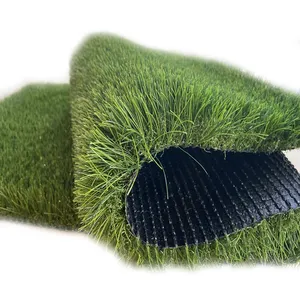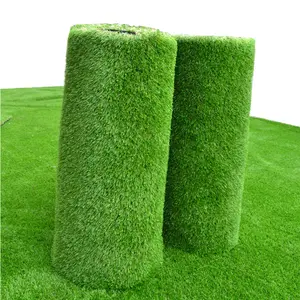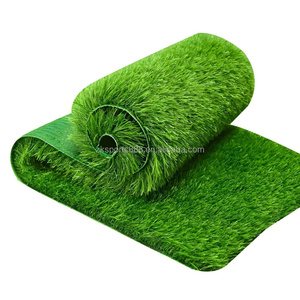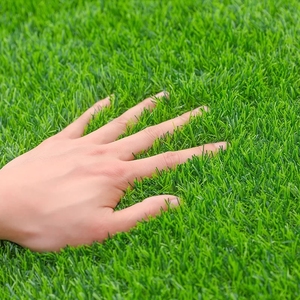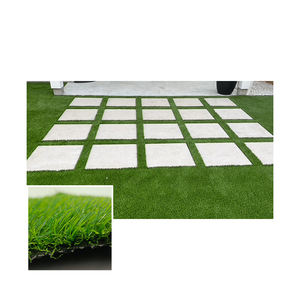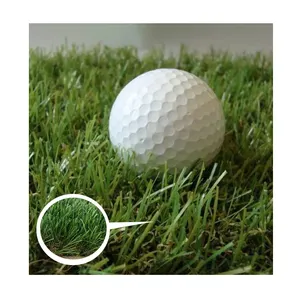Soil Under Artificial Grass





 1/9
1/9





 1/12
1/12




 1/15
1/15





 1/7
1/7
















 1/9
1/9







 1/15
1/15





 1/4
1/4


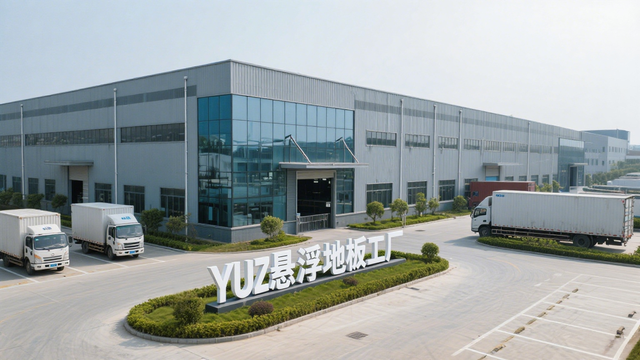




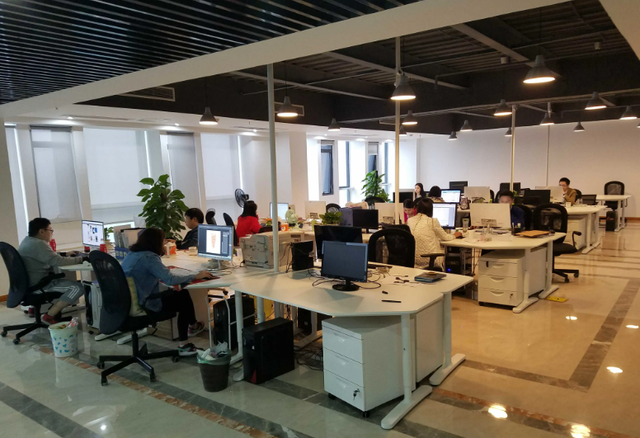





 1/19
1/19





 1/7
1/7





 1/3
1/3






 1/13
1/13





 1/30
1/30





 1/5
1/5
About soil under artificial grass
Where to Find Soil Under Artificial Grass Suppliers?
China remains the central hub for manufacturing soil underlay and related base materials used beneath artificial grass installations, with key production clusters in Guangdong, Shandong, and Hebei provinces. These regions host vertically integrated facilities specializing in foam-based shock pads, XPE (cross-linked polyethylene) underlays, and composite substrates engineered for drainage, cushioning, and root stabilization. Guangzhou and Qingdao serve as primary export centers, leveraging port infrastructure and established supply chains for synthetic turf components.
The industrial ecosystem supports both standard and customized underlay solutions, with manufacturers utilizing extrusion foaming, lamination, and density calibration technologies to meet performance requirements for sports fields, landscaping, and residential applications. Economies of scale enable competitive pricing, with typical production lead times ranging from 15–25 days for bulk orders. Buyers benefit from localized access to raw materials such as LDPE, EVA, and recycled polymers, reducing input costs by 18–25% compared to non-Asian suppliers. Most factories maintain minimum order quantities (MOQs) between 50–100 square meters, with select suppliers offering sample batches at 1 square meter increments.
How to Choose Soil Under Artificial Grass Suppliers?
Effective supplier selection requires a structured evaluation across technical, operational, and transactional criteria:
Material & Performance Specifications
Confirm product compatibility with intended application—sports turf requires shock absorption (measured via G-max values), while landscape installations prioritize water permeability and dimensional stability. Standard underlays range from 8–20mm thickness with densities between 30–120 kg/m³. Request test reports on compression recovery, UV resistance, and thermal expansion. Common materials include XPE, PE foam, and rubber composites, each offering distinct resilience and installation profiles.
Quality Assurance Protocols
Prioritize suppliers adhering to internationally recognized quality systems. While ISO 9001 certification is not universally declared in available data, high-performing vendors demonstrate consistency through verified on-time delivery rates exceeding 97%. Evaluate response time (target ≤3 hours) and reorder rates as proxies for customer satisfaction and service reliability. Reorder rates above 30% indicate strong post-sale performance and product conformity.
Customization and Compliance
Assess capacity for tailored specifications including size, color, logo imprinting, and packaging. Leading suppliers offer OEM labeling and graphic customization. For regulated markets, verify compliance with environmental standards such as RoHS and REACH, particularly when using foam additives or flame retardants. Although CE marking is less common in underlay-specific listings, it may be required when bundled with complete turf systems exported to Europe.
Procurement Safeguards
Utilize secure payment mechanisms such as escrow services to mitigate risk. Conduct factory audits via video tours to validate production lines and inventory management. Request physical samples to assess texture, density, and seam integrity prior to full-scale ordering. Benchmark pricing against market averages—current data indicates a price band of $1.00–$4.50 per square meter for foam-based underlays, with premium shock pads reaching up to $40/m² for specialized sports-grade variants.
What Are the Best Soil Under Artificial Grass Suppliers?
| Company Name | Location | Online Revenue | On-Time Delivery | Avg. Response | Reorder Rate | Price Range (USD/m²) | Min. Order | Customization |
|---|---|---|---|---|---|---|---|---|
| Guangzhou Green Tower Sports Facilities Co., Ltd. | Guangdong, CN | US $120,000+ | 97% | ≤3h | 16% | $1.50–4.00 | 100 m² | Yes |
| Shenzhen Ldk Industrial Co., Limited | Guangdong, CN | US $280,000+ | 100% | ≤3h | 18% | $7.99–246.00* | 1 m² / 1 pc | Yes |
| Qingdao Sinysenda Industrial Co., Ltd. | Shandong, CN | US $450,000+ | 100% | ≤3h | 38% | $6.70–40.00 | 50–100 m² | Yes |
| Langfang Zhenti Artificial Lawn Co., Ltd. | Hebei, CN | US $50,000+ | 99% | ≤2h | <15% | $1.00–1.50 | 1 m² | Yes |
| Guangzhou Youge Artificial Lawn Co., Ltd | Guangdong, CN | US $1,700,000+ | 96% | ≤3h | 33% | $0.89–4.51 | 100–500 m² / ft² | Yes |
Performance Analysis
Qingdao Sinysenda leads in customer retention with a 38% reorder rate, indicating high product satisfaction and consistent quality control. Guangzhou Youge commands the largest online revenue volume, suggesting extensive market reach and diversified product offerings despite slightly lower on-time delivery (96%). Langfang Zhenti stands out for low-cost entry points ($1.00/m²) and rapid response times (≤2h), making it suitable for small-scale or trial orders. Shenzhen Ldk’s broad price range reflects dual positioning in both underlay materials and complete turf systems, though higher-priced items may represent ancillary equipment rather than base layers. Guangzhou-based suppliers dominate volume production and exhibit strong responsiveness, with all reporting sub-3-hour average reply times. Buyers seeking cost efficiency should evaluate Langfang and Guangzhou Youge, while those prioritizing reliability and traceability may favor Qingdao Sinysenda and Shenzhen Ldk, both achieving 100% on-time delivery records.
FAQs
How to verify soil under artificial grass supplier reliability?
Cross-check declared on-time delivery rates with transaction history and buyer feedback. Request documentation on material composition and perform independent lab testing for critical parameters like density and water absorption. Conduct virtual factory inspections to confirm production capacity and quality inspection procedures.
What is the typical MOQ for underlay materials?
Standard MOQs range from 50–100 square meters for roll-form foam underlays. Some suppliers accommodate smaller trial orders starting at 1 square meter, particularly for sample validation. Larger contracts may require 500+ m² commitments for custom formulations.
Do suppliers offer customization for thickness and size?
Yes, most suppliers support tailored dimensions, including cut-to-length rolls, specific thicknesses (8–20mm standard), and branded packaging. Custom tooling may be required for non-standard densities or composite structures, extending lead time by 7–10 days.
Are samples available before bulk ordering?
Sample availability is widespread, with many suppliers offering 1m² test pieces at nominal or no cost if followed by a purchase. Expect shipping fees to apply. Sample production typically takes 3–7 days, with express delivery adding 5–10 business days globally.
What are common lead times for bulk production?
Standard lead times range from 15–25 days after deposit confirmation. Expedited production may reduce this to 10–14 days at increased cost. Sea freight adds 20–35 days depending on destination region, making air freight preferable for urgent, low-volume shipments.














